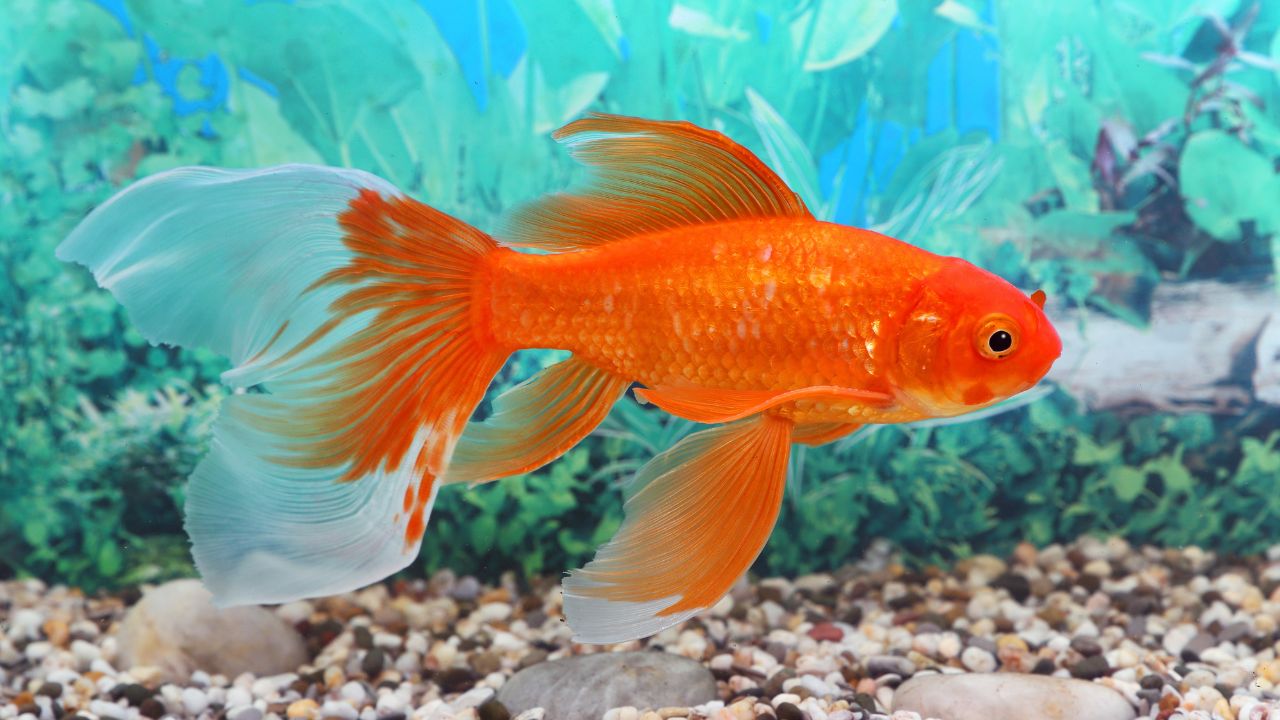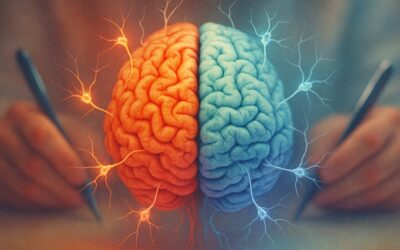- Unraveling the Myth of the Three-Second Memory
- The Complexity of Fish Brains
- Memory Formation in Goldfish
- Long-Term Memory in Goldfish
- Factors Influencing Goldfish Memory
- Swimming Past the Myth
- Keywords
- Key Takeaways
- FAQs
- Can goldfish remember past events?
- How long can goldfish remember things?
- Can goldfish recognize their owners?
- Do goldfish have a sense of direction?
- Can goldfish learn tricks or tasks?
- Do goldfish have social interactions?
- How can I enhance my goldfish’s memory?
- Can goldfish remember their feeding schedule?
- Can goldfish remember negative experiences?
- Are all goldfish the same in terms of memory capabilities?
- Myth Buster
- Myth: Goldfish have a three-second memory span.
- Myth: Goldfish have simple brains and lack cognitive abilities.
- Myth: Goldfish cannot remember past events or learn from experiences.
- Myth: Goldfish are unintelligent due to their short memory.
- Myth: Goldfish have no awareness of their environment.
- Myth: Goldfish cannot recognize their owners.
- Myth: Goldfish have no ability to learn tricks or perform trained behaviors.
- Myth: Goldfish memory is limited to a few days at most.
- Myth: Goldfish have no social recognition or memory of social interactions.
- Myth: All goldfish have the same memory capabilities.
- Checkpoint
Goldfish, with their vibrant colors and graceful movements, have long been a popular choice for aquarium enthusiasts. However, an enduring belief surrounding these aquatic creatures is that they possess a shockingly short memory span, lasting no longer than three seconds. In this article, we dive into the truth behind this commonly held notion, exploring the fascinating world of goldfish memory and dispelling the myth that they have such limited cognitive capabilities.
Unraveling the Myth of the Three-Second Memory
The idea that goldfish have a three-second memory has been perpetuated by popular culture, anecdotes, and misinterpretations. However, scientific research paints a very different picture. Let’s explore the fascinating truth about goldfish memory:
The Complexity of Fish Brains
Contrary to popular belief, goldfish have relatively complex brains for their size and possess certain cognitive abilities. While their brain structure differs from that of mammals, they have developed various adaptations that allow them to interact with their environment and exhibit intelligent behaviors.
Memory Formation in Goldfish
Research has shown that goldfish have the ability to form memories and retain information for longer periods than the popular myth suggests. Several studies have demonstrated that goldfish can learn and remember associations between events, objects, and experiences. Here are some key findings:
- Spatial Memory: Goldfish have shown remarkable spatial memory capabilities, being able to navigate complex mazes, recognize landmarks, and remember the location of food sources. This suggests that they possess cognitive maps of their environment.
- Associative Learning: Goldfish can also learn through associative processes, forming connections between stimuli and rewards or punishments. They have been trained to respond to specific cues, such as colored objects or sounds, indicating the presence of food.
- Conditioning and Habituation: Goldfish can be trained through classical conditioning and habituation. They have been shown to respond differently to familiar and novel stimuli, indicating recognition and memory of previously encountered objects or situations.
- Social Recognition: Goldfish exhibit social recognition, being able to distinguish between familiar and unfamiliar individuals of their own species. This recognition extends to conspecifics’ behavior, indicating memory formation and the ability to remember social interactions.
Long-Term Memory in Goldfish
Studies have also suggested that goldfish possess long-term memory, challenging the notion that their memory is fleeting. Research has shown that goldfish can retain learned behaviors and associations for weeks, months, or even years. Here are some noteworthy findings:
- Food Acquisition: Goldfish can remember the location of food sources and learn feeding routines. They can recognize specific feeding times, locations, and even the appearance of their caretakers, showing anticipation and memory of feeding events.
- Avoidance Learning: Goldfish have demonstrated the ability to remember and avoid aversive stimuli. They can learn to associate certain cues or experiences with negative outcomes, leading to avoidance behavior in subsequent encounters.
- Transitive Inference: Goldfish have shown the ability to make inferences based on previously learned information. They can deduce the relative relationships between stimuli or objects based on past experiences, displaying a form of logical thinking.
Factors Influencing Goldfish Memory
The memory capabilities of goldfish can be influenced by various factors, including environmental conditions, social interactions, and individual differences. Factors that may impact goldfish memory include:
- Environmental Complexity: Enriched environments with diverse stimuli and opportunities for exploration can enhance goldfish memory and cognitive abilities. Providing them with a stimulating and varied aquarium environment can contribute to their overall well-being and mental stimulation.
- Social Interactions: Goldfish are social animals and can benefit from social interactions with conspecifics. Living in groups or pairs can provide mental stimulation, promote social recognition, and potentially enhance memory function.
- Repetition and Reinforcement: Consistent training, repetition of learned tasks, and reinforcement through positive rewards can aid in memory retention and recall in goldfish.
Swimming Past the Myth
The myth that goldfish have a three-second memory is deeply ingrained in popular culture, but scientific evidence reveals a different reality. Goldfish possess memory capabilities that extend beyond the limitations of this myth, demonstrating the ability to learn, remember, and adapt to their environment. By shedding light on the truth about goldfish memory, we can gain a deeper appreciation for these captivating aquatic creatures.
Keywords
- Goldfish: A species of freshwater fish known for its vibrant colors and graceful movements.
- Myth: A widely held but false belief or idea.
- Three-Second Memory: The misconception that goldfish can only remember information for three seconds.
- Cognitive: Relating to the mental processes of perception, memory, judgment, and reasoning.
- Memory Formation: The process by which information is encoded, stored, and retrieved in the brain.
- Spatial Memory: The ability to remember and navigate through a physical environment.
- Associative Learning: The process of forming connections between stimuli and responses.
- Conditioning: The process of training or influencing behavior through the association of stimuli and outcomes.
- Long-Term Memory: The retention of information over an extended period, ranging from weeks to years.
- Environmental Enrichment: Providing a stimulating and varied environment to enhance cognitive abilities and well-being.
Key Takeaways
- Goldfish possess cognitive abilities and memory capabilities beyond the commonly held belief of a three-second memory span.
- They have complex brains for their size and can form memories, learn through associative processes, and exhibit social recognition.
- Goldfish demonstrate spatial memory, associative learning, conditioning, and long-term memory.
- Factors like environmental complexity, social interactions, and repetition can influence goldfish memory.
- The myth of the three-second memory in goldfish is debunked by scientific research.
FAQs
Can goldfish remember past events?
Yes, goldfish have the ability to form memories and retain information about past events. Scientific research has shown that they can remember associations between events, objects, and experiences.
How long can goldfish remember things?
Goldfish can retain learned behaviors and associations for extended periods. They have been observed remembering information for weeks, months, and even years, challenging the idea of their memory being limited to a few seconds.
Can goldfish recognize their owners?
Goldfish can develop recognition of their caretakers based on visual and auditory cues. They can associate their owners with positive experiences like feeding and show anticipation and recognition when their owners are present.
Do goldfish have a sense of direction?
Yes, goldfish have shown remarkable spatial memory capabilities. They can navigate complex mazes, recognize landmarks, and remember the location of food sources, indicating their ability to form cognitive maps of their environment.
Can goldfish learn tricks or tasks?
Goldfish can be trained to learn specific tasks or respond to cues. They can associate stimuli like colored objects or sounds with the presence of food, enabling them to learn tricks and perform trained behaviors.
Do goldfish have social interactions?
Goldfish are social animals and can recognize familiar and unfamiliar individuals of their own species. They can remember social interactions and exhibit social recognition, indicating a level of memory formation in relation to their conspecifics.
How can I enhance my goldfish’s memory?
Providing an enriched environment with diverse stimuli, such as plants, hiding places, and objects to explore, can enhance a goldfish’s memory and cognitive abilities. Social interactions with conspecifics and consistent training with positive reinforcement can also contribute to memory retention.
Can goldfish remember their feeding schedule?
Goldfish can remember feeding routines and the location of food sources. They can recognize specific feeding times, locations, and even the appearance of their caretakers, displaying anticipation and memory of feeding events.
Can goldfish remember negative experiences?
Goldfish can learn to associate certain cues or experiences with negative outcomes, leading to avoidance behavior in subsequent encounters. They have the ability to remember and avoid aversive stimuli.
Are all goldfish the same in terms of memory capabilities?
Individual differences can influence goldfish memory capabilities. Some goldfish may exhibit stronger memory and cognitive abilities than others. Factors such as genetics, age, and environmental conditions can contribute to variations in memory performance.
Myth Buster
Myth: Goldfish have a three-second memory span.
Reality: Scientific research has shown that goldfish can form memories and retain information for extended periods, challenging the idea of their memory being limited to three seconds.
Myth: Goldfish have simple brains and lack cognitive abilities.
Reality: Goldfish have relatively complex brains for their size and possess cognitive abilities, including memory formation, spatial memory, associative learning, and recognition of social interactions.
Myth: Goldfish cannot remember past events or learn from experiences.
Reality: Goldfish can learn, remember, and adapt based on past experiences. They can form associations between stimuli and rewards or punishments and exhibit recognition of familiar objects and individuals.
Myth: Goldfish are unintelligent due to their short memory.
Reality: Goldfish demonstrate cognitive abilities and have been shown to possess long-term memory, spatial memory, and the ability to make inferences based on previously learned information.
Myth: Goldfish have no awareness of their environment.
Reality: Goldfish possess spatial memory, navigate through complex mazes, recognize landmarks, and remember the location of food sources, indicating an awareness and memory of their environment.
Myth: Goldfish cannot recognize their owners.
Reality: Goldfish can develop recognition of their owners based on visual and auditory cues. They can associate their owners with positive experiences like feeding and display anticipation and recognition.
Myth: Goldfish have no ability to learn tricks or perform trained behaviors.
Reality: Goldfish can be trained through conditioning and repetition. They can learn to respond to specific cues and perform trained behaviors, indicating their capacity for learning and memory.
Myth: Goldfish memory is limited to a few days at most.
Reality: Goldfish have been observed retaining learned behaviors and associations for weeks, months, or even years, indicating long-term memory capabilities.
Myth: Goldfish have no social recognition or memory of social interactions.
Reality: Goldfish can distinguish between familiar and unfamiliar individuals of their own species and remember social interactions, demonstrating social recognition and memory formation.
Myth: All goldfish have the same memory capabilities.
Reality: Individual differences, such as genetics, age, and environmental conditions, can influence goldfish memory capabilities. Some goldfish may exhibit stronger memory and cognitive abilities than others.
Checkpoint
Goldfish have a memory span of:
a) Three seconds
b) One minute
c) Several hours
d) Weeks or longer
C
Goldfish can navigate through complex mazes, indicating their ability for:
a) Spatial memory
b) Auditory memory
c) Visual memory
d) Short-term memory
A
Goldfish can learn through associative processes by forming connections between:
a) Events and rewards
b) Objects and punishments
c) Stimuli and memories
d) Interactions and social recognition
C
True or False: Goldfish can recognize their owners based on visual and auditory cues.
True
Goldfish memory can be enhanced by:
a) Providing an enriched environment
b) Isolating them from social interactions
c) Avoiding repetition and reinforcement
d) Keeping their environment simple and monotonous
A










0 Comments
Trackbacks/Pingbacks